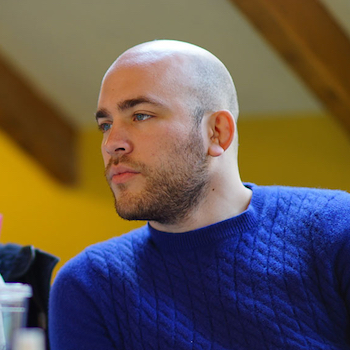
Tech
Why Tech-heads Swear by DAOs
The concept of a decentralized autonomous organization (DAO) has been around since the early 2000s, but only recently has it gained mainstream attention. This is due to advancements in blockchain technology, which has enabled the possibility of creating and sustaining a distributed, self-organizing digital ecosystem. As we enter 2023, the DAO marketplace is on the brink of becoming a reality, and the process of onboarding new users and services is beginning to take shape.
What is a DAO?
DAOs are digital organizations that are designed to operate autonomously, without the need for a central governing body or administrator. A DAO is powered by a set of policies and smart contracts that are designed to ensure that all members of the organization have their voices heard, decisions are made democratically and efficiently, and the organization remains self-sustaining. In essence, a DAO can be thought of as a digital democracy where all members have an equal say in decision-making.
A DAO typically operates within a blockchain network with open-source coding, which is fueled by token incentives to reward its members for their contributions. Members of the DAO are able to join, work, vote on proposals, and participate in decision-making by providing feedback and ideas. This makes DAOs highly attractive for businesses since it offers an efficient way to manage operations without relying on a single leader or traditional governance models. Furthermore, due to the decentralized nature of DAOs, organizations are able to operate securely, independently, and with fewer resources than traditional business models.
The history of DAOs
The concept of a decentralized autonomous organization first began in 2013 when Vitalik Buterin proposed the idea of a self-governing organization that could facilitate peer-to-peer financial transactions on a decentralized platform. This concept was developed further in Ethereum’s white paper and sparked the growth of numerous decentralized platforms, such as Aragon, Augur, Golem, and MakerDAO.
Today, DAOs are utilized for various business functions and objectives, from crowdfunding projects to creating new decentralized applications (DApps). They are autonomous, decentralized organizations that are powered by smart contracts, enabling their members to transact with one another securely and quickly.
As technology advances, the possibilities of DAOs have continued to expand. In 2016, The DAO was created as a decentralized venture capital fund, leveraging the power of the Ethereum blockchain. Although The DAO was met with a fair bit of controversy and was ultimately hacked by users, its failure highlighted the potential for DAOs and paved the way for future development.
Since then, numerous other DAOs have been created to tackle various projects and problems, from decentralized finance (DeFi) to gaming platforms. This is an exciting time for DAOs as more companies and organizations begin to recognize the potential of these autonomous entities to revolutionize businesses and industries.
Past statistics of DAO
Since the beginning of DAO as a concept, the space has grown exponentially, with an estimated $108 billion of capital locked into various DAOs by mid-2022. This massive growth can be attributed to the increased demand for more decentralized, efficient, and secure governance structures.
From a statistical standpoint, the DAO space has grown remarkably over the past few years. In 2019, a survey revealed that more than 100 DAOs were active in the blockchain space, with nearly $1.5 billion worth of investments and $250 million worth of assets under management. By mid-2022 it was reported that there were already over 4,000.
Clearly, the DAO space has seen tremendous growth in recent years and is likely to continue growing as organizations and investors become more aware of its potential. While the DAO market may still be in its infancy, there’s no denying that this space is rapidly maturing and offers immense opportunities for both startups and established organizations.
The future of DAOs
The future of DAOs is an exciting concept for many, as it promises to revolutionize the way businesses and other organizations are run. As technology continues to advance, the potential applications of DAOs seem to widen. By leveraging distributed ledger technology and smart contracts, DAOs enable a new way of structuring governance and collaboration, allowing anyone with an Internet connection to have a say in the decision-making process.
In the coming years, the development of DAOs will continue to expand and evolve, as more developers and organizations join the movement. One key factor that will be vital for the growth of DAOs is adoption by more mainstream entities. To date, most DAOs have been small-scale projects developed by hobbyists or small teams. As more large organizations move towards using blockchain technologies and smart contracts, larger-scale DAO projects will become more commonplace.
Aside from adoption by larger entities, another important factor for the growth of DAOs is the development of the ecosystem and tools surrounding them. More sophisticated tools for developing DAOs and managing their governance are needed in order to make them more accessible to a wider audience. Additionally, security protocols must also be improved in order for users to trust their investments and data stored within the system.
In the next five years, we can expect to see DAOs become more prevalent as they begin to take on more complex tasks. From managing funds to organizing voting processes, DAOs will become increasingly more capable of automating and decentralizing all sorts of tasks. In addition, they will become more user-friendly, with easy-to-use interfaces and applications designed to simplify the onboarding process.
We can also expect to see increased regulation around the use of DAOs. With their growing prevalence, governments and regulators will likely seek to implement standards for their usage and protect users from any potential scams or vulnerabilities that may arise due to the decentralized nature of DAOs.
Ultimately, the future of DAOs holds great potential for those looking to innovate and disrupt traditional ways of working. As more organizations start to explore the possibilities of using DAOs, the possibilities of what they can do in the future are endless.
The DAO marketplace in 2023
2023 has been dubbed the “Year of the DAO” by its many proponents. One of the biggest trends that we can expect to see in the upcoming year is a shift toward onboarding new members into existing DAOs. Currently, the process for joining a DAO requires extensive knowledge of blockchain technology, as well as a hefty amount of money in order to buy in. New platforms have been created in order to make this process simpler and more accessible for anyone interested in joining a DAO.
Another trend that we can expect to see in 2023 is an increase in the number of specialized DAOs. These organizations focus on specific tasks or goals such as managing a fund or providing a platform for a particular application or service. This means that investors and developers can join a DAO that focuses on their specific area of interest, making it easier for them to find success.
Finally, we can expect to see more regulation around DAOs in 2023. As governments become more aware of the potential of DAOs and the technologies they are built upon, they will likely create laws and guidelines that govern these organizations. These laws will ensure that only legitimate players are able to participate in the DAO marketplace.
Overall, the future of the DAO marketplace looks bright. With new innovations emerging every day and more users coming on board, it will be an exciting time for those interested in blockchain technology and decentralized applications. With the right tools and regulations in place, the DAO marketplace in 2023 promises to be an interesting and prosperous one.

